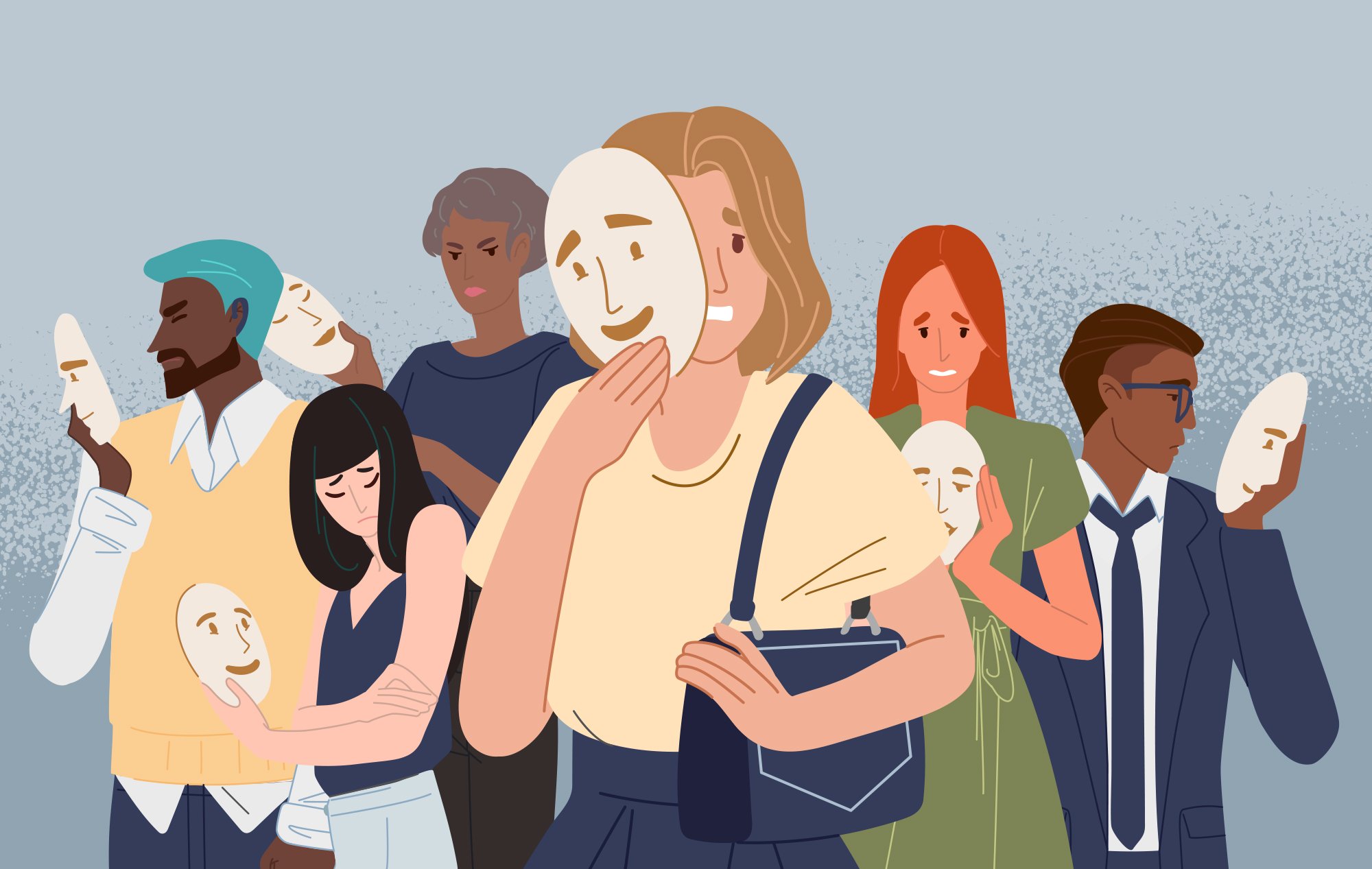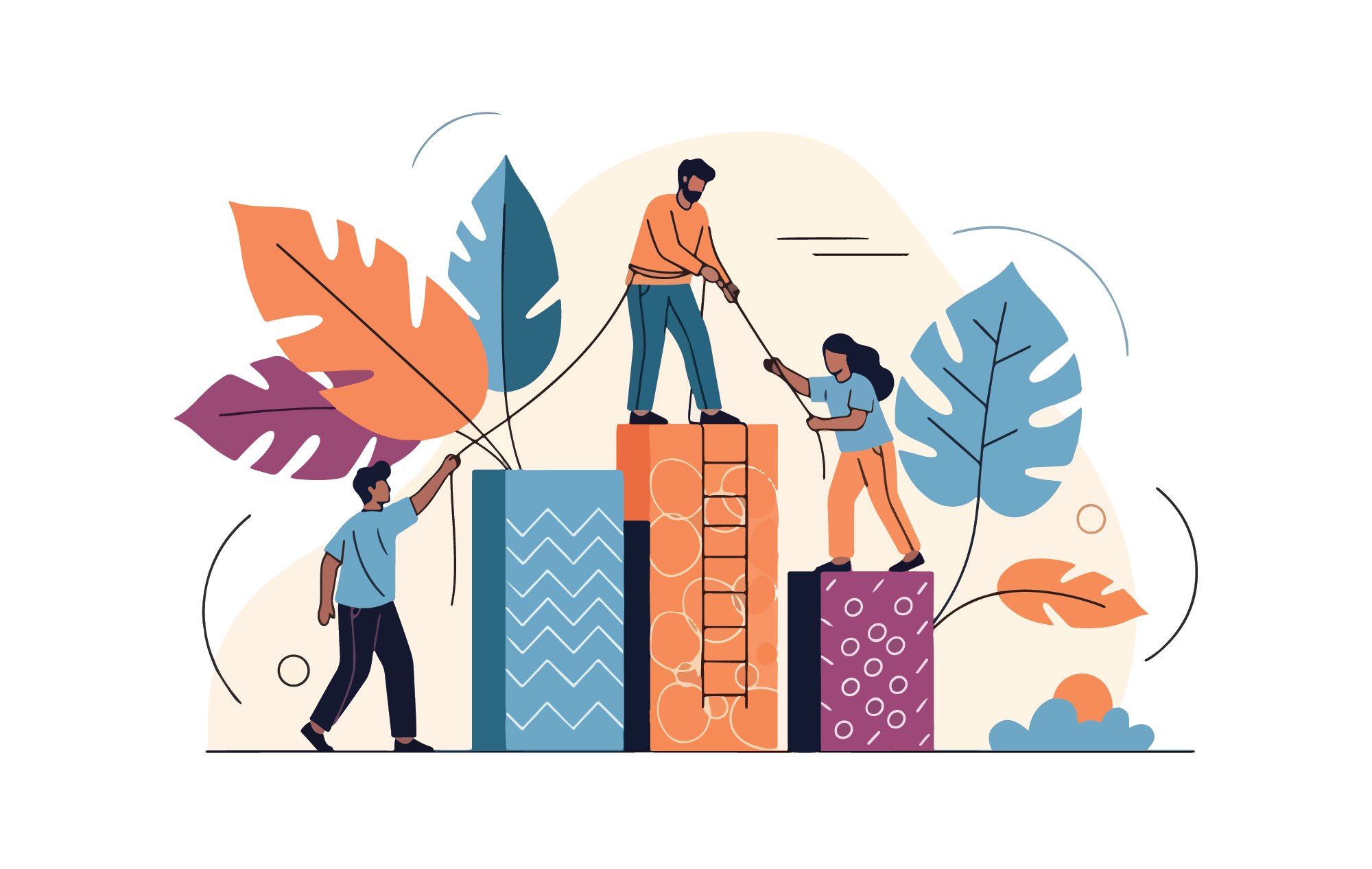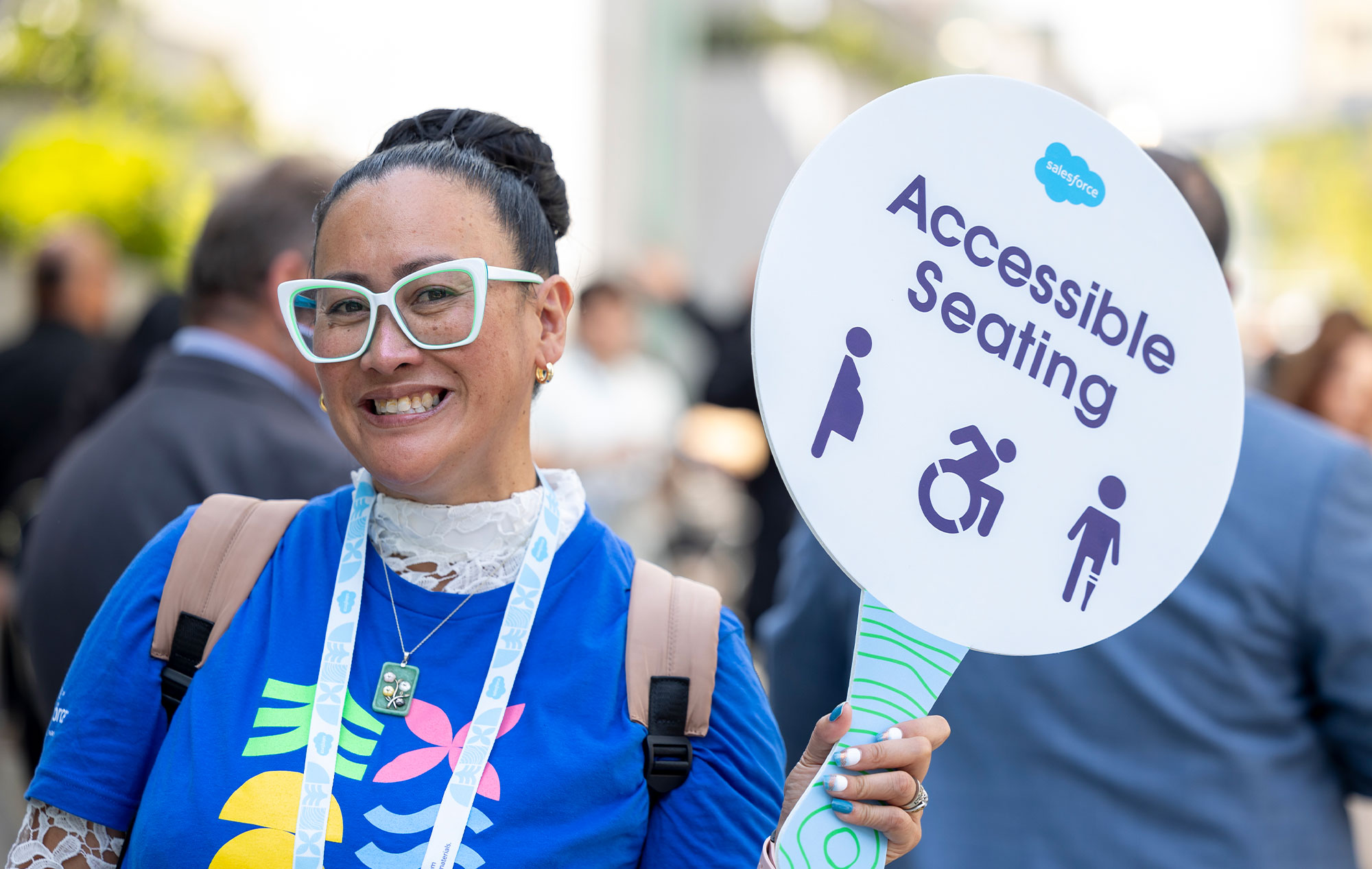Being autistic can be incredibly isolating and lonely.
It’s common to feel different or just slightly off from everybody else. Plus, many barriers to employment remain for professionals with disabilities, and many companies lag behind when it comes to accessibility and inclusion.
Veronica Pillon, Transformation Consulting Director at Salesforce, has worked in tech for more than 30 years and knows personally the plight of autistic professionals. In reflecting on her earlier career, she recalls routinely wondering, “What’s wrong? Why don’t I fit in?”
She describes being neurodiverse as like having “this sensation where you're always a minute late,” and shares a recent experience she says embodies so much of her life with autism.
“I went off for 20 minutes explaining to someone what the British expression ‘Oh, she's as useful as a chocolate teapot’ means,” laughs Pillon. “But if you pour hot water in a chocolate teapot, the chocolate teapot will be melting. Therefore it's not very useful. And you're like, ‘Yeah, I see that,’ and I’m still not getting it.”
Common Challenges for Autistic Professionals
There are several challenges Pillon has encountered as a professional with autism, including difficulty networking, getting promoted, exhaustion from having to “mask,” and struggling to filter thoughts before speaking.
“To elevate people with autism to the next level is extremely complex,” she says, “some of which the neurodiverse community does not exactly adapt to well.”
Selling yourself is not something neurodivergent professionals are typically very good at and having to build networks in order to get promotions is a system that doesn’t suit autistic professionals’ strengths, notes Pillon.
She recalls a colleague who was producing less results and yet still got a raise.
“She could do the networking,” Pillon says. “She’d go for a drink after work, and I was like ‘Let’s go home and get some silence. I spend the day in public. I need me time. I need silence.’”
But there’s also certain social etiquette common to neurotypical professionals that’s uncomfortable for their colleagues in the neurodiversity community, she explains:
“Hugging? Why would I hug you? I don’t know you. Who are you? I couldn’t understand why I couldn’t get promoted at that kind of job. I was hired at a certain level and everyone was telling me what a great job I was doing, but I didn’t get promoted.”
Neurodiversity is rather, well, varied. So what may be a challenge for one neurodivergent professional may not be for another.
“If you've met a neurodiverse person, well, you've just met one neurodiverse person,” Pillon says. “It's very unique, and there is a spectrum for a reason.”
To get by in society, many neurodivergent professionals have developed their ability to mask, or temporarily behave in ways more common to neurotypical professionals.
“The reality is you have people that are very, very good at masking,” she explains. “You should see me with clients. I'm super professional, polished, and I even manage to put makeup on, which I find to be one of the most horrifying things in my life. Why do I do it? Because I have a desperate need to belong. And I shouldn't need that. I shouldn't need to hide myself behind layers of this impossible person.”
Disabilities representation in leadership matters, and remains another barrier Pillon feels acutely.
“You can imagine the power of having someone that is at the VP level, or a senior director level, and I'm at the director level,” she says. “But I know that I have possibly reached a glass ceiling.”
She attributes this “glass ceiling,” in part, to her disinterest in playing office politics, something frequently expected in the corporate world if one is to move up the ladder.
“I'm aware of this because I'm crap at politics, and I don't deal very well with BS, so I call it out,” she says. “This is not good. You can't progress in your career when you call BS in front of everybody. There is no filter. It goes through your mind, ‘You are talking sh*t. And I am going to call you out on it.’ This is not career advancing, by the way.”
The ‘Aha’ Moment: Receiving an Autism Diagnosis
Life before receiving her autism diagnosis was even more bewildering and frustrating. Pillon was diagnosed during her 30s “in a kind of weird coincidence,” she says, “while in a very deep depression.” The diagnosis of autism came while she was also experiencing what she calls “crippling OCD.”
Obtaining a diagnosis changed everything for her.
“Knowledge is peace,” Pillon says. “My diagnosis was the biggest ‘aha’ moment. I realized why I felt so off all the time, why I never truly belonged. I was finally me. I was not simply ‘weird’ or ‘a nutjob,” or ‘peculiar’—all the nice things I heard about me at work—but I was autistic.”
Pillon’s struggles to advance her career suddenly crystallized for her, as well.
“I never understood why I could not be promoted and my career stalled,” she says. She felt she “did not fit the corporate world” because “telling the truth was not always welcomed.”
She believes a diagnosis has been “the greatest gift you can give to someone that has felt like I have all my life.”
Reflecting on her career post-diagnosis, the tech veteran is not only grateful for the peace she’s experienced, but how it’s enabled her to lean into her strengths while accepting some of her limits.
“I now know my biggest weakness,” she says. “And I can either compensate or leverage strength. It took work. You need to have a good sense of self. You need to sit down and say that’s my strength and that's where I’m not so good. I can try to improve on what I’m not so good at or focus on my strengths. That was the biggest flip. Knowing brought me that level of peace.”
The Importance of Psychological Safety for Autistic Professionals
In simple terms, psychological safety is about creating a work environment where team members aren’t worried about being castigated, belittled, or punished for speaking up about ideas, concerns, or mistakes that have been made. This is especially important for autistic professionals who may not filter their thoughts in the same ways neurotypical colleagues do.
For Pillon, psychological safety means “encouraging your team to take risks to be themselves, to not feel judged,” she says. “It's the greatest thing a company can do.”
In contrast with previous points in her career, she is continually grateful for a supervisor that understands the importance of psychological safety. “He does it every day,” she says. “I am me. Yes, I wear a ‘mask’ with clients, but my core self is safe.“
She contributes much of her current success to working with a team that prioritizes accommodating neurodiverse professionals.
“I am genuinely a believer in Salesforce, both from a technology point of view and a human perspective,” she says. “My boss provides a psychologically safe and fertile environment for growth. And that gives me such gratefulness, peace, and a level of comfort. You are enabled to do your job. It’s an incredible gift. I’m very lucky. I wish everyone experienced my boss.”
Getting Past Impostor Syndrome
Pillon is also quick to point out many people experience impostor syndrome in the workplace, an internalized belief involving severely doubting your skills and abilities and worrying whether you’ll be found out as ‘a fraud,’ but she believes it’s especially pervasive throughout the neurodiverse community.
“Autistic people live with impostor syndrome,” she says, “even more than the rest of the population. It's incredible how many people have impostor syndrome, thinking we're not good enough. There is a voice that is like, ‘Oh, they're finally gonna find me out.’”
She finds this psychological occurrence is more prevalent than most people think, and can trouble people with disabilities because they frequently wonder if they “got the job to fill a quota,” or “got this job because they were lucky.” Autistic professionals encounter a “double battle,” she says, “when your worst enemy lives between your ears.”
To root out this thinking, she tells those she mentors to write down their “best qualities and assets” on a piece of paper and “put it above your computer screen.” She also recommends creating “a PowerPoint about yourself for your own benefit, describing your values, your experience, who you are, your ambitions, and what you bring to the table.”
While autistic professionals face a particular set of challenges, she reminds her neurotypical teammates she is more than her autism diagnosis:
“I'm a wife. I'm a mother. I'm a daughter. I am being bossed around by a four-kilo dog that thinks she owns everything around me. I'm disabled physically. Oh, and yes, I am autistic. It’s just part of who I am. But it took me a long time to get there.”
Salesforce is a founding partner of InclusionHub, an online directory and digital resource for organizations looking to prioritize inclusion and accessibility. Explore our crowd-sourced database to learn more about ways you can support neurodivergent professionals within your organization.





Leave a Comment